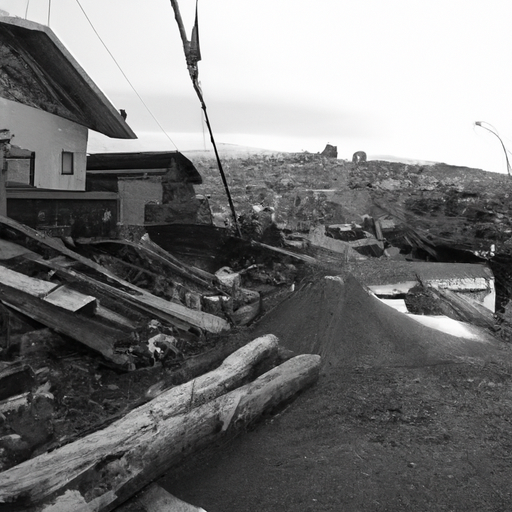The Canadian Opioid Crisis: A Closer Look at the Yukon First Nation’s Call for Accountability
Recently, APTN News reported on the unsettling situation in the Yukon territory regarding the Eagle Gold Mine, and the consequential social issues fueled by the ongoing opioid crisis. Canadian society today continues to grapple with the devastating impact of opioids, and the tremors of this crisis are felt across all sectors. From instances of homelessness and crime to the mounting pressures on our health care system, it is unfortunate evidence of the aftermath of this crisis.
How the Yukon First Nation is Impacted
Based on the article from APTN News, the opioid crisis has hit hard in the Yukon First Nation community. Victoria Gold Corp.’s Eagle Gold Mine, a vital economic entity, is seen contributing to various socio-economic problems, including widespread drug addiction and correlated opioid disorders. The aftermath echoes the tragic nationwide opioid crisis that has taken a distressing toll on communities, notwithstanding exacerbating factors such as unemployment and housing issues.
The Role of Eagle Gold Mine
The Eagle Gold Mine, as one of Canada’s newest gold mines, has seemingly transformed the socio-economic fabric of the Yukon. With advanced technology allowing for the extraction of up to 200,000 ounces of gold annually, the mine promised employment and economic vitality. Simultaneously, however, it introduced layers of other issues such as increased drug availability and addiction.
Multifaceted Effects of the Opioid Crisis
While the opioid problem is palpable, its tentacles reach across multiple facets of society, including:
- Increased crime rates: The opioid crisis increases crime rates, particularly petty crimes as addicts seek resources to purchase illicit substances. It amplifies insecurities and distress in communities.
- Naloxone availability: Naloxone, a drug used to counteract opioid overdoses, has become indispensable. However, the surge in demand hints at the magnitude of the opioid crisis.
- Orphaned children: Many children are left orphaned or displaced by the opioid crisis as parents fall victim to overdoses and addiction-related issues.
- Homelessness: The economic fallout coupled with addiction often leads to homelessness, a grim facet of the opioid crisis.
Efforts to Combat the Effects
Efforts are underway to forecast and mitigate the impact of the opioid crisis. Lawyers are mounting an opioid class action on behalf of several municipalities across Canada against opioid manufacturers and distributors, looking to hold them accountable.
The Need for Transparency and Accountability
In light of these alarming cues, the Yukon First Nation is calling on the federal auditor general to assess the federal government’s response, or lack thereof, to the mounting socio-economic issues tied to the mine’s operation. There’s a resounding plea for transparency and accountability regarding the crisis at hand, signaling the urgency to reassess the government’s role and responsiveness.
To conclude, the Canadian opioid crisis is a major public health concern tangled with socio-economic outcomes. The increase in opioid misuse, addiction, homelessness, and crime along with the pressing demand for naloxone paints a stark picture of the crisis’s magnitude. As we see more communities, like the Yukon First Nation, raise their voices against this situation, it pushes for more diligent response, transparency, and accountability from larger entities. The call for a formal investigation into the government’s response reiterates the severity of this crisis.
It’s a hard-hitting reminder that tackling the opioid crisis isn’t merely about reducing drug availability. It’s about restructuring our communities, equipping them with resources to navigate this crisis, and above all else, protecting the most vulnerable among us. Let’s hope this call for accountability sparks meaningful action against this multifaceted, devastating crisis.


